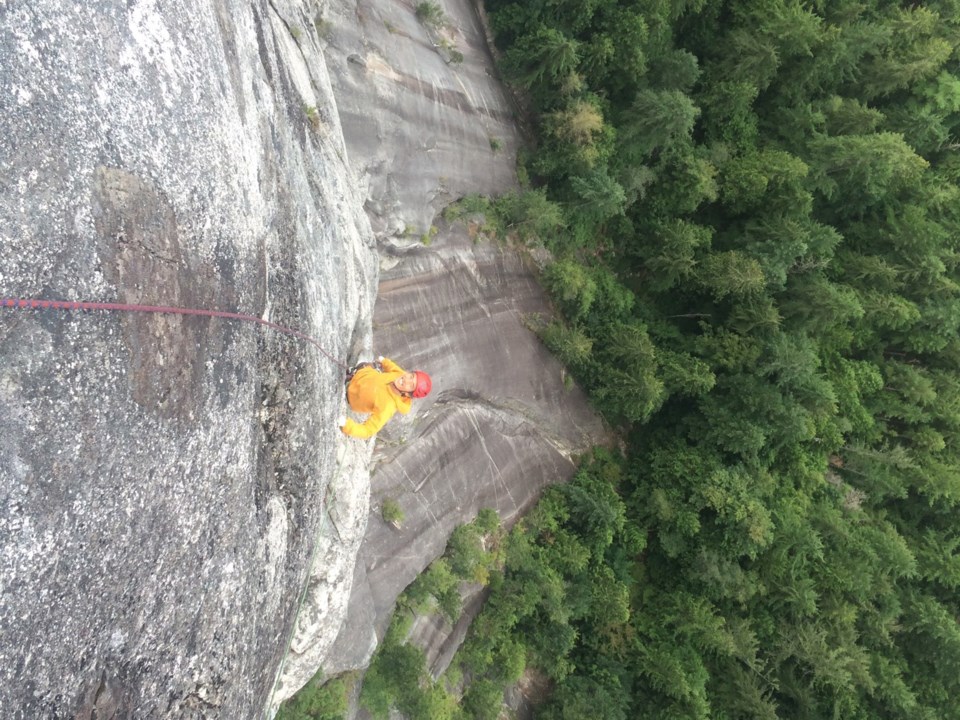It’s official. As of Aug. 3, five new sports have been allowed into the illustrious, velvet-draped halls of the Olympics. The new choices, the IOC declared, will bring fresh, youthful energy to the games. Along with skateboarding, surfing, softball and baseball, indoor climbing will now be appearing in Tokyo in 2020.
Is the Olympics the right venue for climbing to make another big step towards more popular audiences and understanding? After Tommy Caldwell and Kevin Jorgeson’s Dawn Wall triumph and resulting surge in popularity, climbing in the Olympics will be another huge move towards the more traditional sporting cultures of North America and the world. Just as importantly, is climbing ready to dip one of its arms deep into sports’ most iconic and politically barbed arenas?
To start, the competitive format proposed for climbing by, I assume, the IOC has gathered some criticism from the climbing world. Athletes will have to compete in all three disciplines – lead climbing, bouldering and speed climbing. Their scores in each discipline added together will decide who the winners are.
Does a 100-metre sprinter have to also race a 10-kilometre to make it to the podium? Why should the climbers have to compete in all three when each category requires special training and each athlete wants to compete in their strongest area? Speed climbing, created long ago as a ratings booster for TV and the media, is the odd discipline out because its competitors are so uniquely trained and many of the world’s best competitive climbers have no experience in speed climbing.
If the Olympics is really about showcasing the pinnacles of each sport then drop this combined format, one which sounds like it was cobbled together by a non-climber without much knowledge of the different disciplines or the skills required.
Details aside, my real worry is that climbing is too good for the Olympics. There, now I’ve said it. The Olympics have lost much of their pure beginnings over the past decade to bribery, doping scandals, host nations going deeply in dept and not reaping any benefits for their own citizens and wealthy nations paying to rig the games in the name of economic benefits.
What began as nations displaying their strongest and fastest and entering into sporting competition has become nations using the imagery and symbolism exemplified through sport to sell themselves in our global economy. Can you blame them when each Olympic games has become an endless slope of “who can go bigger?” while the costs just keep mounting higher and higher.
Devil’s advocate here, but it does seem that climbing’s inclusion by the IOC, like surfing, is to distance itself from the older, more tarnished sports and instead align itself with the younger generation and with more popular sports around the globe that let the Olympics access a larger growing market.
With the Olympics being more and more about big national business, I worry that climbing will get dragged along on the Olympic ride with the scandals, doping and cheating that often follow sports influenced by nations hunting for fame and an economic boost. That, and climbing will yet again be misunderstood by the world as a sport where going fast is the “raddest.”
But what about the young climbers who will find inspiration in pursuing the Olympic dream and head to The Games to represent Canada after training diligently for years?
What about the scores of citizens, young and old, who will read about, watch or listen to the games and find the motivation to be more active, to get more into the culture of sport and lead healthier lives by giving climbing a try?
These are the ideas that keep me from getting too negative about climbing’s inclusion in the Olympics.
Climbing is a many-headed beast, and if one of its snake-coated heads thrusts towards the wider appeal of high-performance Olympic gold and nation representing, I think it will give climbing more resiliency in the long term and a population more passionately connected to the planet.
Canada also has a strong competitor already on the world cup scene in Sean McColl, who would be a climber capable of being competitive in this new, strange three-discipline format. Canada, Olympic climbing’s gold standard.




